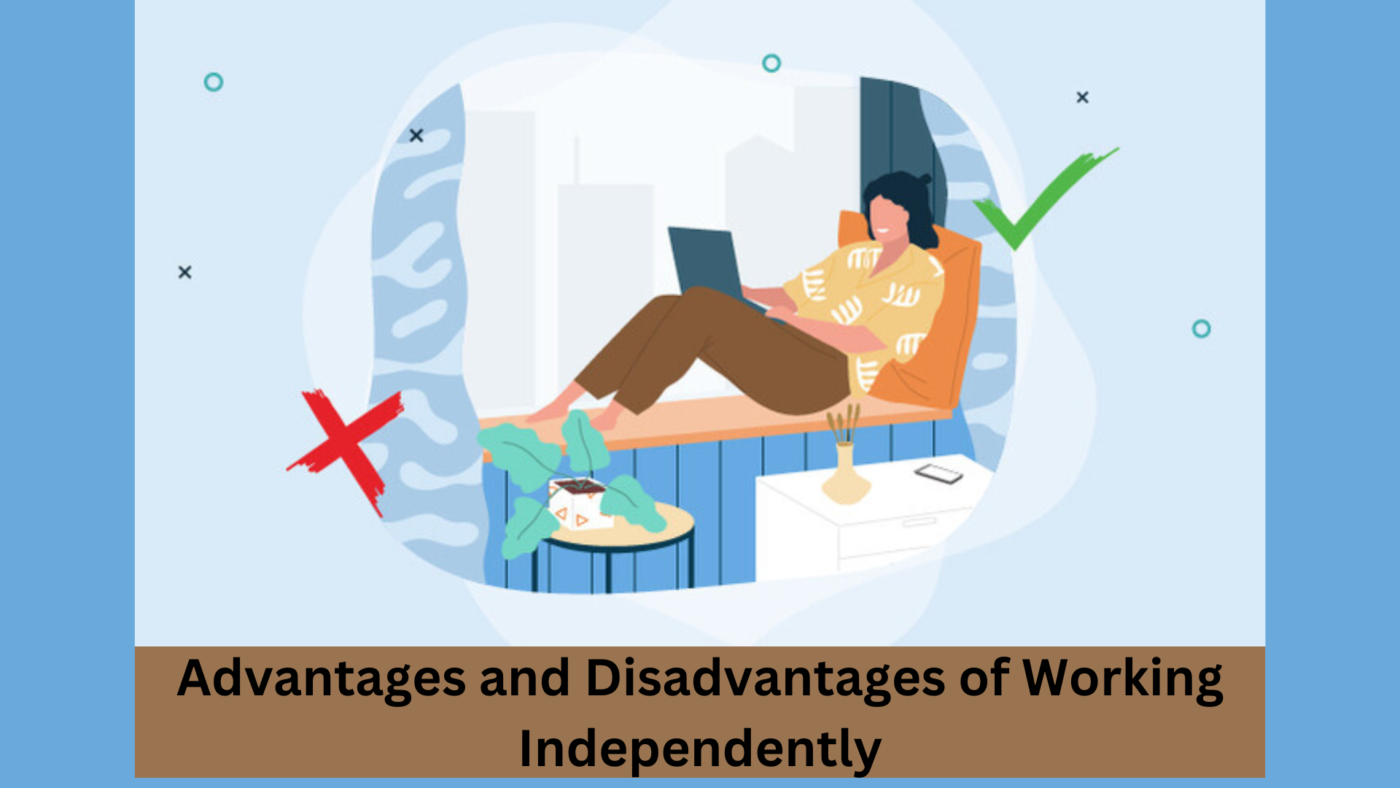Working independently, also known as freelancing or self-employment, has become increasingly popular in recent years. With the rise of the gig economy and remote work, more people are choosing to work independently, away from the traditional 9-to-5 office setup. However, like any other work arrangement, The Ability of working independently has its advantages and disadvantages.
Advantages of Working Independently
1. Flexibility and Autonomy
Working independently provides the freedom to work at your own pace, choose your own projects, and set your own schedule. This flexibility allows you to balance work and personal life more effectively, which can lead to increased productivity and job satisfaction.
2. Unlimited Earning Potential
As an independent worker, your earning potential is directly tied to your skills, experience, and effort. You can negotiate rates with clients, take on multiple projects, and increase your earnings without being limited by a salary cap.
3. Pursue Passion Projects
Working independently allows you to pursue projects that align with your passions and interests. This can lead to increased motivation, creativity, and job satisfaction.
4. Reduced Office Politics
Independent workers avoid the office politics, gossip, and drama that can be a major distraction in traditional work environments. This allows you to focus on your work without unnecessary stress.
5. Improved Work-Life Balance
With the flexibility to set your own schedule, independent workers can more easily balance work and personal responsibilities, such as caring for family members or pursuing hobbies.
6. Diversified Income Streams
Independent workers can diversify their income streams by taking on multiple projects, clients, or industries. This reduces financial risk and increases stability.
7. Professional Freedom
Working independently provides the freedom to choose your own work style, tools, and methodologies. This allows you to work in a way that suits your personality, skills, and preferences.
8. Opportunities for Skill Development
Independent workers must continuously develop new skills to stay competitive. This leads to personal and professional growth, increased confidence, and a sense of accomplishment.
Disadvantages of Working Independently
1. Unpredictable Income
Independent workers face uncertain income, as clients may cancel projects or delay payments. This can lead to financial stress and difficulty budgeting.
2. Lack of Benefits
Independent workers are responsible for providing their own benefits, such as health insurance, retirement planning, and paid time off. This can be a significant expense and administrative burden.
3. Social Isolation
Working independently can lead to social isolation, as you miss out on the social interactions and camaraderie of an office environment. This can negatively impact mental health and well-being.
4. Increased Responsibility
Independent workers are responsible for all aspects of their business, including accounting, marketing, and administrative tasks. This can be overwhelming and time-consuming.
5. Limited Resources
Independent workers may not have access to the same resources, such as equipment, software, or training, as traditional employees. This can hinder productivity and competitiveness.
6. No Job Security
Independent workers face the risk of project cancellation, non-payment, or industry downturns. This can lead to financial insecurity and stress.
7. Difficulty in Separating Work and Personal Life
Independent workers may find it challenging to separate work and personal life, leading to burnout, overwork, or the blurring of boundaries.
8. Professional Isolation
Independent workers may miss out on opportunities for professional development, networking, and mentorship, which can hinder career growth and advancement.
Mitigating the Disadvantages
While working independently has its disadvantages, many of these can be mitigated with:
- Effective time management and organization
- Diversified income streams
- Regular communication with clients and colleagues
- Proactive marketing and self-promotion
- Continuous skill development and training
- Establishing clear boundaries between work and personal life
- Seeking support from peers, mentors, or professional organizations
Conclusion
Working independently offers many advantages, including flexibility, autonomy, and unlimited earning potential. However, it also comes with significant disadvantages, such as unpredictable income, lack of benefits, and social isolation. By understanding these advantages and disadvantages, independent workers can take steps to mitigate the negative aspects and thrive in their careers. With the right mindset, skills, and strategies, working independently can be a fulfilling and rewarding experience.
Additional Tips for Independent Workers
- Set clear goals and priorities
- Establish a dedicated workspace
- Develop a routine and schedule
- Stay organized and focused
- Continuously market and promote yourself
- Seek support from peers and mentors
- Prioritize self-care and well-being
- Stay up-to-date with industry trends and developments
By following these tips and being aware of the advantages and disadvantages of working independently, you can navigate the challenges and opportunities of this work arrangement and achieve success on your own terms.

